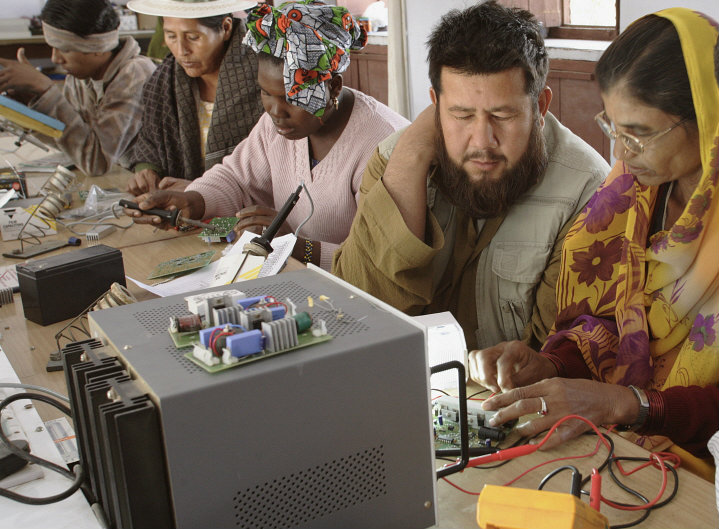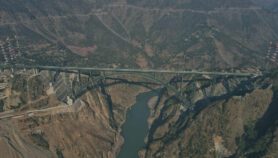By: Joshua Howgego
Send to a friend
The details you provide on this page will not be used to send unsolicited email, and will not be sold to a 3rd party. See privacy policy.
This advance — coupled with an expanding number of university courses in the subject — signals that the field is beginning to come of age as an academic discipline, experts said at an international meeting this month.
Development engineering involves designing systems and products while taking into account the whole ecosystem in the place of deployment — including anticipating any possible problems arising from cultural or social constraints, said Susan Amrose, a civil and environmental engineer at the University of California, Berkeley, United States. She was speaking at the 3rd UNESCO Technologies for Development (Tech4Dev) conference in Switzerland (4-6 June).
“Development engineering is a discipline where you need to have an understanding of what it takes to solve those development problems that have technological handles.”
Ashok Gadgil, Berkeley
Ashok Gadgil, a researcher at Berkeley, likened the subject to environmental engineering in the 1960s. Back then, he said, engineers from different backgrounds would approach problems in their own ways.
“But now we know that air pollution, water pollution, toxins in food and so on are not completely separable problems” and so the disciplines had to be amalgamated into one subject, he said.
And so it is with development, Gadgil added.
“These are not problems where you can separate just one piece at a time, so you must treat it as a full discipline. We have come to conclude that development engineering is a discipline where you need to have an understanding of what it takes to solve those development problems that have technological handles.”
On track for tenure?
The new open-access journal, which will be published by Elsevier, is due to launch in the second quarter of 2015, according to Temina Madon, co-director of the Development Impact Lab at Berkeley, who has been overseeing the journal’s development.
Silvia Hostettler, deputy director of the Cooperation and Development Center at the Swiss Federal Institute of Technology in Lausanne, told SciDev.Net that the journal would encourage more researchers to enter this nascent field.
Tenure-track academics are often hesitant to conduct research in the global South because it takes more time than research elsewhere and they are under pressure to produce high-impact papers quickly in order to secure a position, she said.
“But if he or she can do this research and at the same time get high-quality publications out of it they will be much more inclined to do that,” Hostettler said.
The journal could help development engineers publish articles in high-impact journals, she said, because it would combat the problem of this research, which is inherently multidisciplinary, “falling in the gaps” between respected journals with narrow scopes.
Engineering education
Teaching of development engineering is also becoming mainstreamed at Western universities, according to Gadgil, who developed and introduced a course at Berkeley for graduate students on the subject in 2006. The course now trains about 25 students a year, he said.
He added that similar courses are springing up at many universities across the United States, including at Massachusetts Institute of Technology, Oregon State University, Duke University, Texas A&M University — and also now in Europe.
Amrose, who took over teaching the course from Gadgil in 2010, said the aim was for these alumni to occupy a range of positions in development-related organisations, bringing their broad knowledge to bear on challenges in the global South.
“The key is that they will understand what it is they don’t know” and be able to spot where potential problems will arise, said Gadgil.














